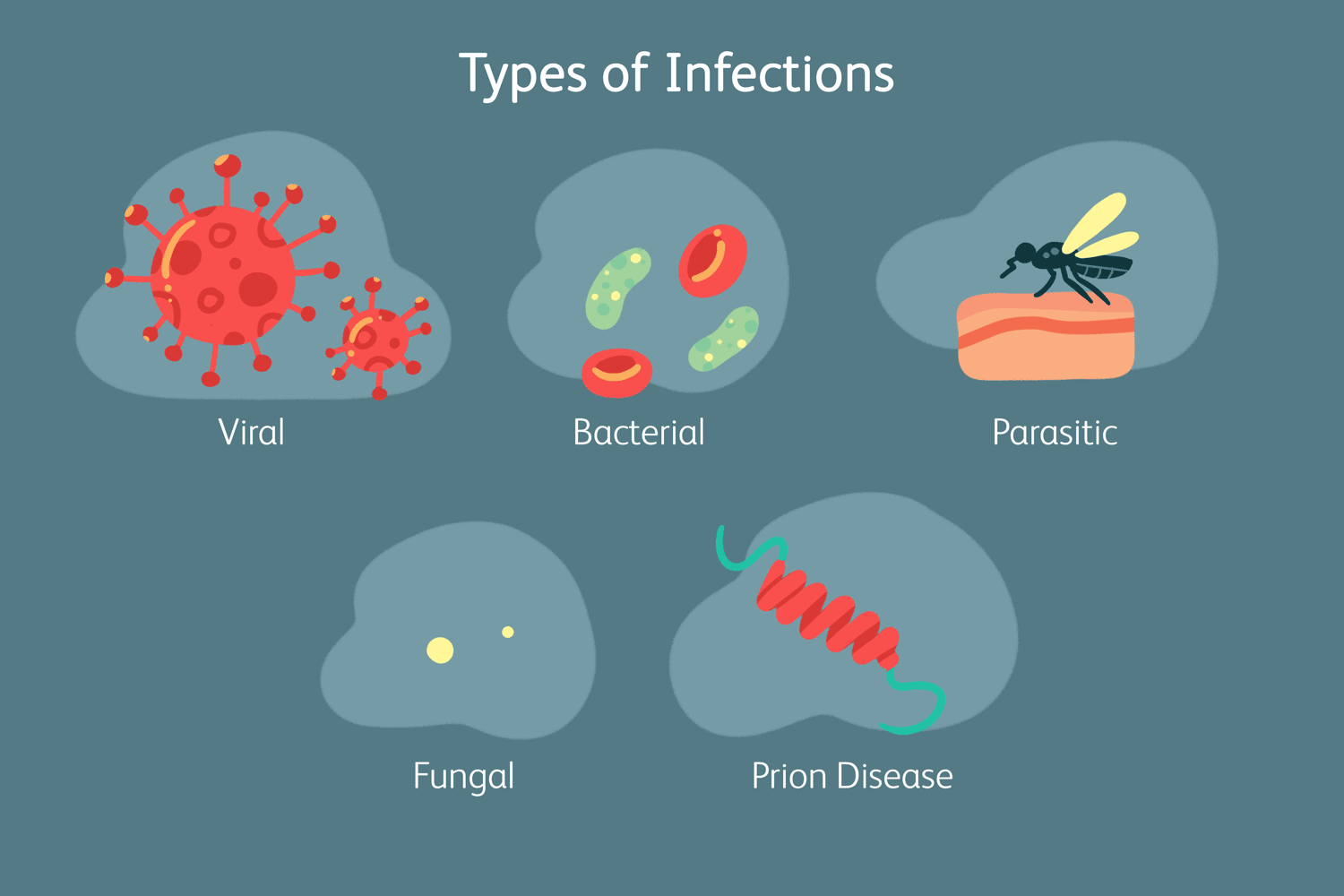
Infectious diseases are illnesses caused by harmful organisms (pathogens) that get into your body from the outside. Pathogens that cause infectious diseases are viruses, bacteria, fungi, parasites and, rarely, prions. You can get infectious diseases from other people, bug bites and contaminated food, water or soil.
What are the types of infectious diseases?
- Viral infections.
- Bacterial infections.
- Fungal infections.
- Parasitic infections.
- Transmissible spongiform encephalopathies (TSEs/prion diseases).
Common infectious diseases caused by viruses
- Common cold.
- The flu (influenza).
- COVID-19.
- Stomach flu (gastroenteritis).
- Hepatitis.
- Respiratory syncytial virus (RSV).
Common infectious diseases caused by bacteria
- Strep throat.
- Salmonella.
- Tuberculosis.
- Whooping cough (pertussis).
- Chlamydia, gonorrhea and other sexually transmitted infections (STIs).
- Urinary tract infections (UTIs).
- E. coli.
- Clostridioides difficile (C. diff).
Common infectious diseases caused by fungi
- Ringworm (like athlete’s foot).
- Fungal nail infections.
- Vaginal candidiasis (vaginal yeast infection).
- Thrush.
Common infectious diseases caused by parasites
- Giardiasis.
- Toxoplasmosis.
- Hookworms.
- Pinworms.

